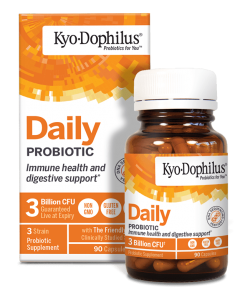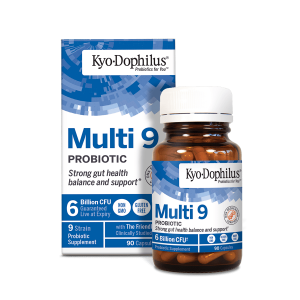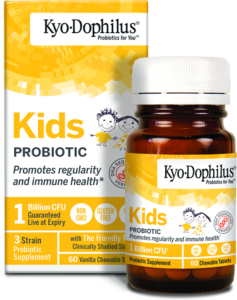For a long time, the word “bacteria” was associated with germs and disease. But the reality is that the body is teeming with healthy bacteria that keep digestion, immunity and a score of other bodily functions in balance. Once people began to understand this, they looked for products and foods to help them maintain this balance. Enter probiotics. Probiotics refer to the specific live strains of “good” bacteria that help the body maintain wellness. They’re found naturally in foods such as yogurt, kefir, sauerkraut, kimchi and pickled vegetables, in supplement form and increasingly as additives in a number of functional food and beverage products. What are probiotics, exactly? Let’s find out.
How do probiotics work?
Once they arrive in an adequate host environment, these microbes can replicate. Generally, a moist environment is necessary for probiotics to stay alive. But in the case of supplements, if the bacteria are stabilized and dried properly, they remain alive and can start to grow and replicate again once they return to a moist environment (in this case, in your body).
When you supplement the body with probiotics, you’re essentially repopulating the gut with the healthy bacteria it needs to maintain a balanced microbiome (the collection of microbes that lives in and on the human body). The microbiome can be thrown off balance by a lack of sleep, antibiotics, stress, travel or a poor diet, so probiotics can play a positive role for many people.
Because the intestines are home to trillions of bacterial cells – not all of them friendly – introducing healthy bacteria into the diet through probiotic-rich foods or supplements can result in better digestive health. Probiotics also benefit immune health because the intestines house about 70 percent of the body’s innate immune function. Increasingly, scientists are also beginning to link microbial balance with body-wide benefits ranging from heart health to mental health.
What’s the difference between probiotics species?
In general, any probiotic supplement will help maintain or restore gut bacteria. But each probiotic genus – and the different species within that genus – performs a different role.
Important to remember is that more may not be better when it comes to CFU count. Below are some general guidelines of CFUs to look for based on species, but be wary of claims that exorbitantly high numbers of CFUs are superior.
Species for overall health include the following. Together, they are great for maintenance. Look for a supplement with at least 1.5 billion cells guaranteed through expiration.
- Lactobacillus gasseri: One of the main species of lactobacilli in the human gut, this species is great for both gastrointestinal function and immune health.
- Bifidobacterium bifidum: This species is known to modulate the immune system and stabilize the body’s metabolic, antibacterial and antiviral responses. Plus, it can reduce inflammation.
- Bifidobacterium longum: Suffering from IBS? Look no further. This species can reduce stress-induced gastro-symptoms, normalize bowel movements, improve IBS and shorten the duration and decrease the severity of acute diarrhea.
Species for gastrointestinal upset include the following. They’re often found together with species for overall health. Look for about 1.5 billion cells through 3 billion guaranteed through expiration.
- Lactobacillus rhamnosus: Reach for this species if you’re taking antibiotics. It’s known to help with side effects like diarrhea, as well as symptoms of IBS.
- Bifidobacterium lactis: Constipation is no match for this species, which can also improve digestive comfort.
- Bifidobacterium infantis: IBS symptoms be gone! This species can reduce symptoms on its own.
Species for immune support include the following. This is often paired with other probiotics. Again, 1.5 million CFUs is ideal for a combination supplement.
- Bifidobacterium breve: This species modulates inflammation as well as allergies, and has been shown to increase resistance to respiratory infections in infants.
This article is for informational purposes only. This article is not, nor is it intended to be, a substitute for professional medical advice, diagnosis, or treatment and should never be relied upon for specific medical advice.




Share this Post